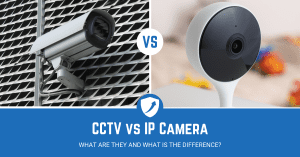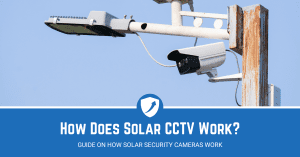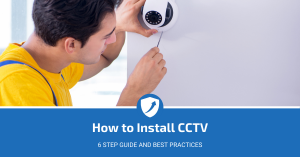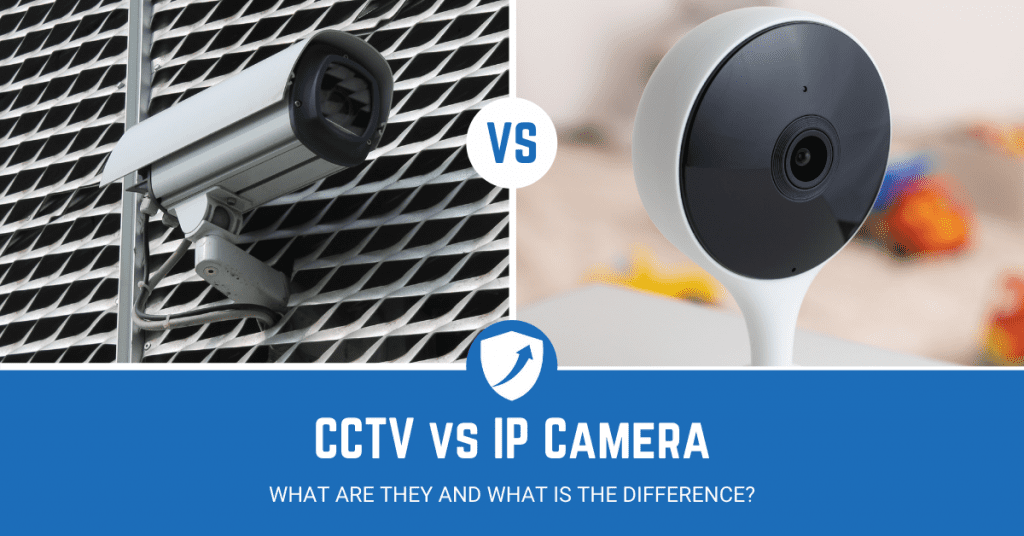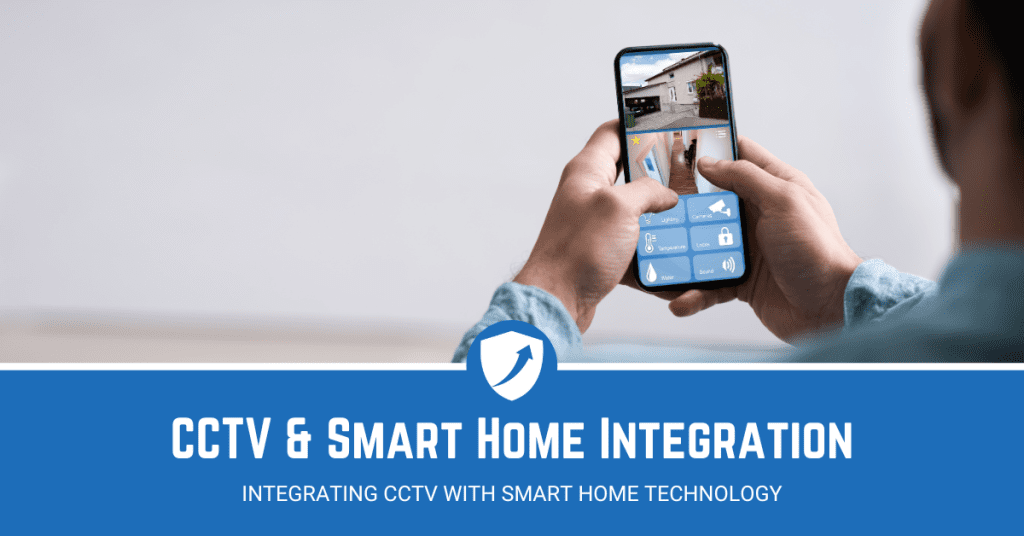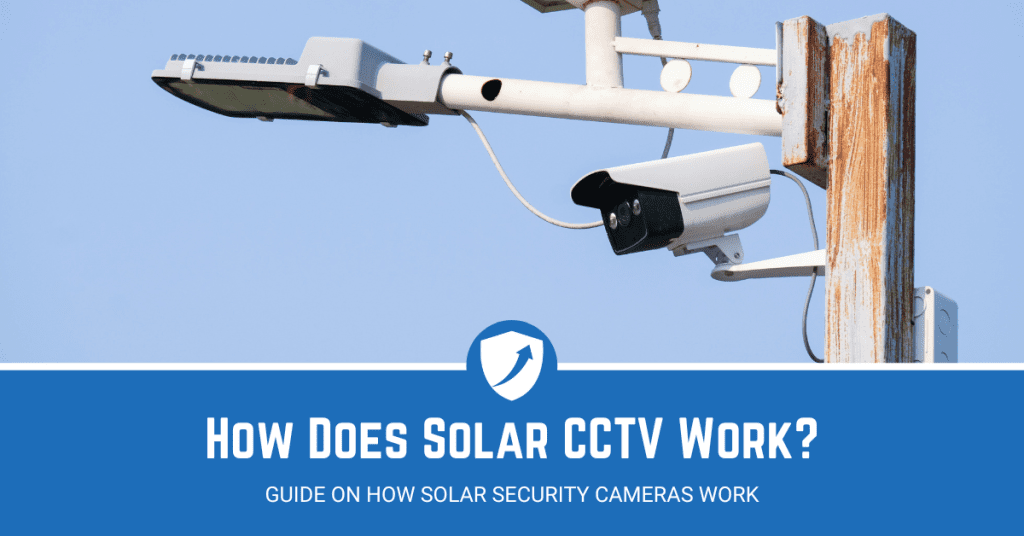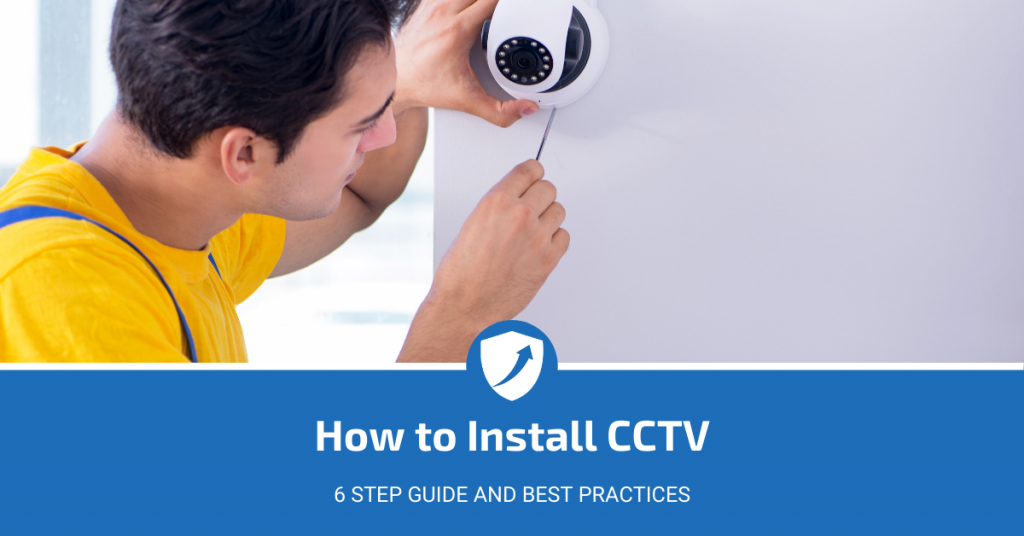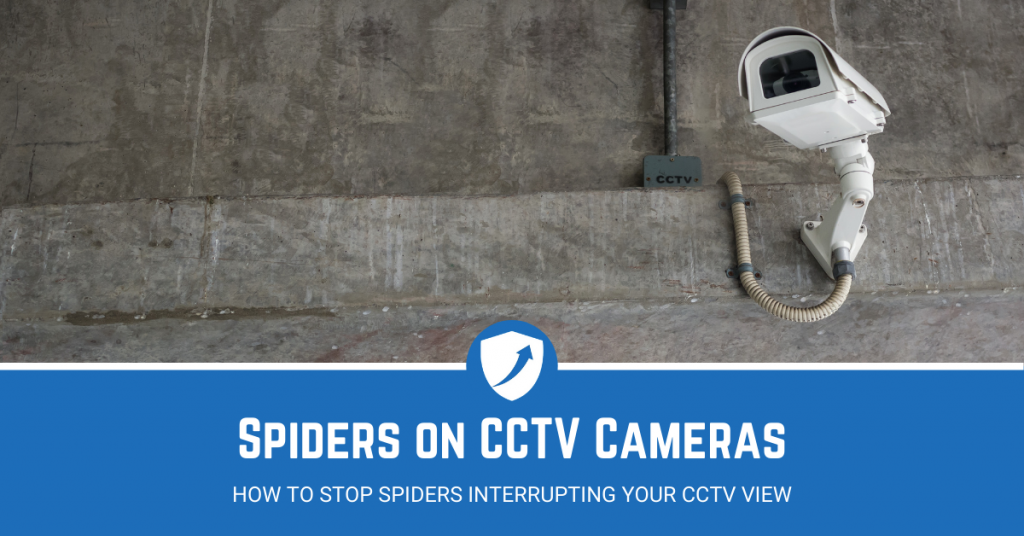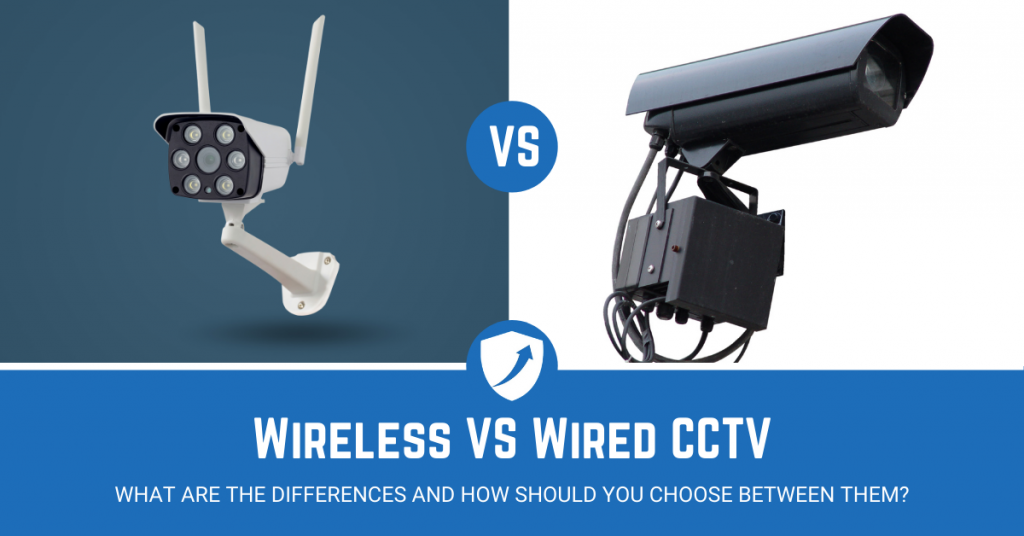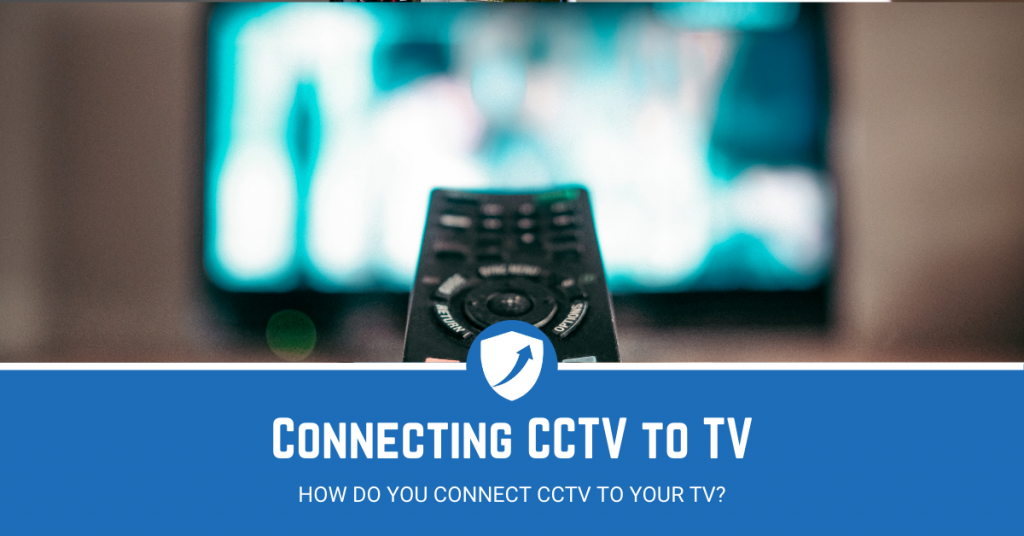With the rise in prevalence of CCTV Cameras both for private and business security, there is a lot of information out there and it can sometimes be hard to cut through the noise to get the right answers.
In this vein, we get a lot of questions about weather conditions around CCTV cameras and stopping spiders and bugs distorting the video feed.
Today, we are going to look at how weather can affect video footage and some ways you can limit its interference with your security cameras.
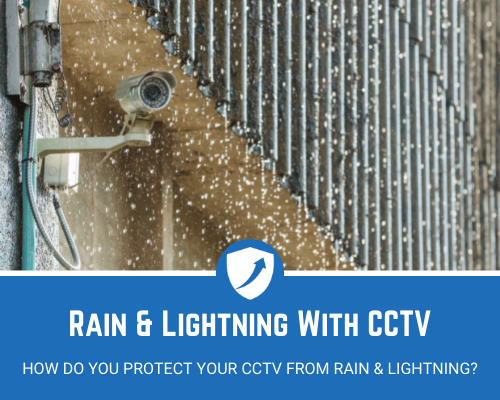
We will be covering the basics, why it is important to protect your cameras, how to look after them, and ways you can limit weather’s impact on your footage.
In summary, we’ll cover:
- CCTV vs Weather Basics
- Why You Need to Protect CCTV Cameras from Weather
- Things You Will Need to Protect Your CCTV Cameras
- Methods for Controlling Weather Conditions Affecting Your Cameras
- CCTV Cameras and Weather Summary
What's in this Guide?
What You Need to Know About Weather & CCTV
There is no denying that weather can negatively impact your CCTV camera footage and even hinder the actual devices.
However, armed with the right knowledge and correct installation you can limit the chances of weather affecting your footage or devices.
As with anything in the security industry, it is important to do your research and understand what kind of things you need to look for in your CCTV cameras.
There is no way to fully remove the threat of weather but there are certainly some steps you can follow to minimise it and maximise your footage.
Why It’s Important to Protect CCTV Cameras From Rain & Lightning
Often something that people overlook when purchasing their security systems, but weather plays a huge part in the usefulness of an outdoor camera’s recordings.
People may even look at getting an indoor camera and placing it outside so they can shave off some of the price, this is an awful idea and will only cost you more in the long run.
Indoor cameras often lack the features that make the outdoor cameras so effective in the harsher environment. With this in mind, let us look at some reasons it is so important to protect your cameras.
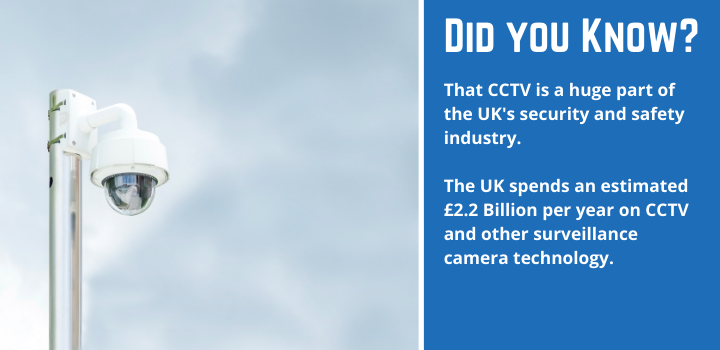
Avoid Weather Damage – to keep your cameras operating at peak capacity for a longer period of time, you want to protect them from the elements. If you consider the weather when installing your cameras you will avoid damage over time.
Control False Alarms – weather can distort images and even trigger alarms, this could be wind, rain or lightning. Protecting your cameras from the environment will limit your false alarms.
Ensure Clear Recordings – the whole point of having a surveillance system is to be able to clearly see your video footage. If you fail to protect your cameras against the weather you will not have much usable video.
Stop Your Camera Being Compromised – once a camera suffers environmental damage it will never be the same again and will limit your future recordings. Ensuring you have taken the right steps to protect it is important to avoid this.
6 Ways to Protect Your CCTV Cameras From Weather
When you are installing your CCTV there are a lot of things to remember, but ensuring you have considered if it is going to be indoors or outdoors will make a lot of decisions easier.
There are a few ways you can ensure your cameras and their footage is protected. We are going to break down the solutions into a few different areas, focusing on the core problems and how to solve them.
Protecting Your CCTV from Lightning
If you are unlucky enough to experience a stroke of lightning on or near your property you may find your surveillance equipment goes haywire. You run the risk of losing the video feed, getting visible interference or even freezing the camera.
Install Anti-Lightning Measures
This can be done in several ways from grounding your CCTV which will minimise damage and route the current into the ground and not your CCTV.
Another common solution is to install surge protectors if you are in an area that is more prone to extreme weather conditions, this will stop the power spiking and damaging your cameras.
Take Care When Installing
This may seem fairly obvious, but ensure you do not install your security system on a metal pole or near anything metal. As we all know, metal is a highly conductive material and is much more likely to get struck by lightning.
A lot of cameras will use non conductive materials or even plastic housing that will avoid attracting lightning. Ensuring you find a camera that is suited for the weather and also installing it correctly will limit your likelihood of lightning damage.
The alternative is to hire a professional installer who’ll know these risks already, be sure to read up on the cost of installing CCTV so that you have a good idea of budget to compare quotes to.
Stop Your CCTV Camera Fogging
There are a lot of reasons your camera could become blurry or fog up, this could be down to the design of the camera, the humidity or temperature in your area or incorrect placement.
Check The Working Temperature of Your Camera
The CCTV industry has become fairly mainstream and we are accustomed to seeing cameras everywhere we go.
This does not mean that all cameras are fit for purpose, and depending on where you are, you may need to check the cameras operating temperatures which could impact their performance in lower or higher temperatures.
Use Practical Methods
If you have selected the right camera and installed it correctly, the housing should be tight and limit the amount of fog or condensation, but there will always be a chance of external interference.
A simple but effective method a lot of users will look into when condensation is a constant issue is using a packet of silica gel that reduces moisture. You probably have seen this in packages or in a pair of new shoes, and it does the exact same thing for your CCTV devices.
Limit Rain’s Impact on Your CCTV Devices
There is no doubt that if you are installing a CCTV camera outside there will be a high likelihood that rain will affect it. Let us look at a few ways to limit the impact rain has on your surveillance equipment.
Get a Waterproof CCTV Camera
CCTV devices’ ability to withstand weather can be measured by Ingress Protection Ratings (IP Rating). As the name suggests, the casing protects the electronics from external elements (i.e. dust, rain or debris).
The industry standard for weatherproof cameras is anything above IP66, which should cover the majority of dust, rain or debris that the camera will face in its everyday usage.
Protect Your Cables
Finding a camera that is suited for the outdoors is one thing, but people rarely think about its connections and how you are going to install the camera. Cables, for instance, are extremely susceptible to the elements.
A lot of people look into the wired vs wireless debate or go for the more simplistic Junction Box approach, basically a protective casing for your cables.
Protecting CCTV Cameras from Weather Summary
As you can see, there are some practical ways and simple methods to limiting the impact weather has on your CCTV cameras and footage.
With this information, you can ensure the CCTV for your home is not hindered by extraneous variables outside of your control, such as the weather. This will make you much more proactive and not trying to salvage blurry or distorted images later.
Remember, just because a camera can be used outdoors does not mean it has been designed for it, so always make sure you keep an eye on the features, design and materials.


